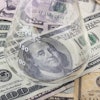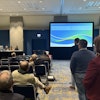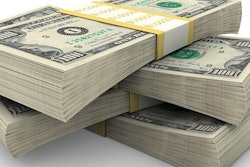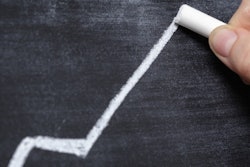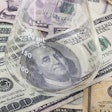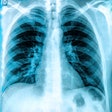U.S. healthcare spending in 2015 grew at a rate of 5.8% to reach $3.2 trillion, or $9,990 per person, according to a new analysis from the U.S. Centers for Medicare and Medicaid Services (CMS) in Health Affairs (December 2, 2016).
In 2014 spending increased 5.3%, which followed five consecutive years of historically low growth from 2009 to 2013; this growth continued into 2015 as Affordable Care Act (ACA) provisions expanded coverage for individuals through marketplace plans and the Medicaid program, CMS found.
Health spending's share of the nation's gross domestic product (GDP) also increased from 17.4% in 2014 to 17.8% in 2015. Coverage expansions that began in 2014 as a result of the ACA increased the percentage of the population with health insurance from 86% in 2013 to 90.9% in 2015.
Lead author Anne Martin of CMS' Office of the Actuary and colleagues found that increases in total healthcare spending were due to accelerated growth in private health insurance (7.2%), hospital care (5.6%), and physician and clinical services (6.3%). The group also determined the following:
- Private health insurance spending reached $1.1 trillion and accounted for one-third of total healthcare spending.
- Medicare spending grew 4.5% in 2015, reaching $646.2 billion and accounting for 20% of total health expenditures. Medicare enrollment reached 54.3 million beneficiaries in 2015, with enrollment increasing 2.7%, somewhat slower than 2014's growth of 3.1%.
- Medicaid expenditures grew at 9.7%, reaching $545.1 billion and accounting for 17% of total healthcare spending.
- Total expenditures for physician and clinical services reached $634.9 billion, 20% of overall health spending and the first growth rate above 6% in a decade.
- Hospital spending reached $1 trillion, representing 32% of all health expenditures.
- Retail prescription drug expenditures grew at a rate of 9%, reaching $324.6 billion and accounting for 10% of overall health spending.
"Over the last 55 years, the largest increases in health spending's share of the U.S. economy have typically occurred around periods of economic recession," Martin said in a statement released by Health Affairs. "While the 2014 and 2015 increases occurred more than five years after the nation's last recession ended, they coincided with 9.7 million individuals gaining private health insurance coverage and 10.3 million more people enrolling in Medicaid coverage."
The analysis will appear in the January 2017 issue of Health Affairs.

